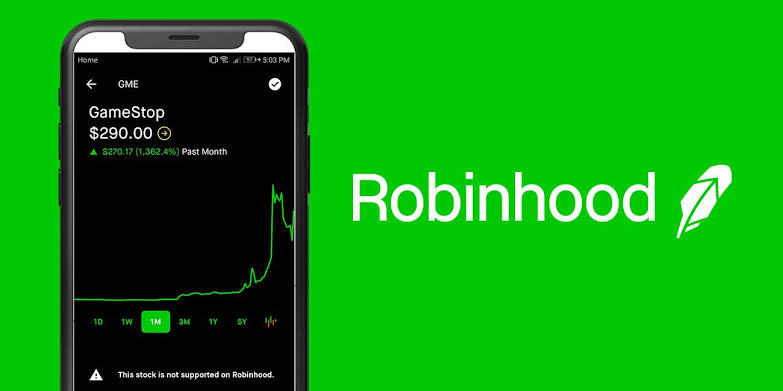Robinhood Faces Backlash for Blocking Retail Investors from Purchasing GameStop Shares, Makes Roughly $700 Million Selling User Data to Hedge Funds
- Posted on February 25, 2021
- Stock Market
- By Glory

Investing platform Robinhood is facing backlash from the public after it was accused of aiding institutional investors over individual investors and traders. The platform blocked individual investors from purchasing shares in GameStop and other stocks that experienced a price explosion last month.
The share price of GameStop rose as much as $500 last week due to investment conversations on the popular Reddit WallStreetBets group. These investors drove the price up, beating hedge funds and other institutional investors who had previously shorted 140% of GameStop shares with the expectation that the stock will decrease in value.
On the contrary, GameStop’s share price increased despite institutional investors’ estimates, causing these investors to lose huge amounts of money. For example, hedge fund Melvin Capital Management lost more than half of its portfolio last month, according to The Wall Street Journal.
Retail investors who use Robinhood to trade accused the company of blocking users from purchasing GameStop shares and some other companies. In its defense, Robinhood said it only restricted transactions for certain company stocks due to “significant market volatility, according to a January 28 statement.
The company later wrote an open letter to its users that it had to halt trading to meet the requirements of clearinghouse deposit that support customer trades. In an earlier statement, Robinhood said there was a tenfold increase in its deposit requirements for equities due to the market’s volatility. Robinhood has denied all allegations that its “actions were done purposely and knowingly to manipulate the market for the benefit of people and financial institutions who were not Robinhood users.”
While Robinhood sticks to its story, there are still doubts over the company’s decision to block trading on GameStop.
“This looks like a move by an outfit called Robinhood, which is supposed to be taking from the rich and giving to the poor, and doing exactly the opposite,” said CNN host Chris Cuomo.
A major reason why allegations against Robinhood persist could be because of its controversial revenue model, which has caused the company to surge in its earnings in the last two years.
Robinhood has long prided itself as an easy to use and accessible platform that provides financial services to its users. It claims to be on a mission to “democratize finance for all”. However, this seems to be so only on the surface as Robinhood makes a lot of money from selling user information to third-party clients who do business with user data.
According to data compiled by The Box, order flow accounts for a greater percentage of Robinhood’s quarterly earnings. The company earned approximately $675 million in revenue from order flow.
Robinhood claims trades are commission-free for its users, but in reality they are sold to “market makers” that can leverage their position as the middle man to make profit, according to the Financial Times. These “market makers” are usually hedge funds or institutional investors that stand to gain more from increased trade and market volatility.
The Securities and Exchange Commission (SEC) fined Robinhood $65 million in December for “misleading statements and omissions” regarding its order flow process payment. The SEC said Robinhood “deprived” users – retail investors – of $34.1 million but provided order flow to clients with higher revenue which are mostly hedge funds and other institutional investors. More than half of Robinhood’s market orders were by Citadel Securities, an affiliate of Citadel, LLC, another hedge fund.
“It’s big customer, by the way – the one it cares about more than you – that’s Citadel, which pays for Robinhood’s order flow. It also happens to be the biggest investor in the hedge fund that just got bankrupted by the Game Stop short squeeze on Robinhood,” Jason Aten (@JasonAten).
Robinhood reportedly made nearly $700 million from selling user data to these hedge funds. The company and hedge funds involved in the allegation have been charged by the SEC in the past for misleading retail investors and traders.


Be the first to comment!
You must login to comment